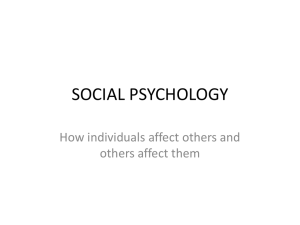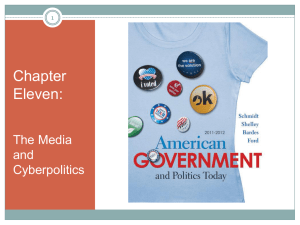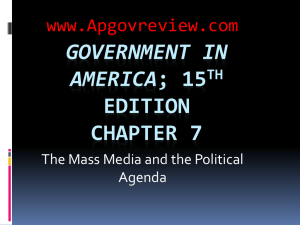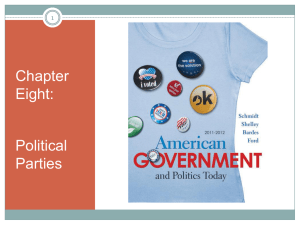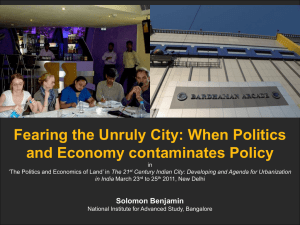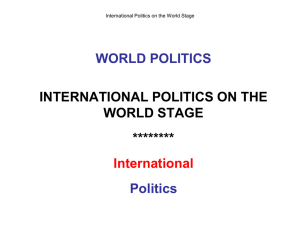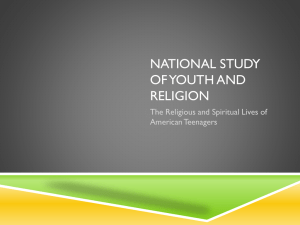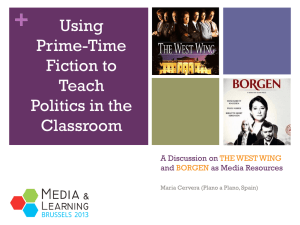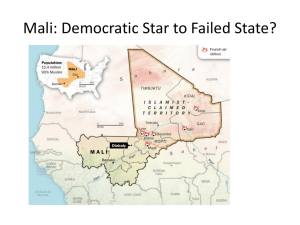Political Culture Daniel J. Elazar
advertisement
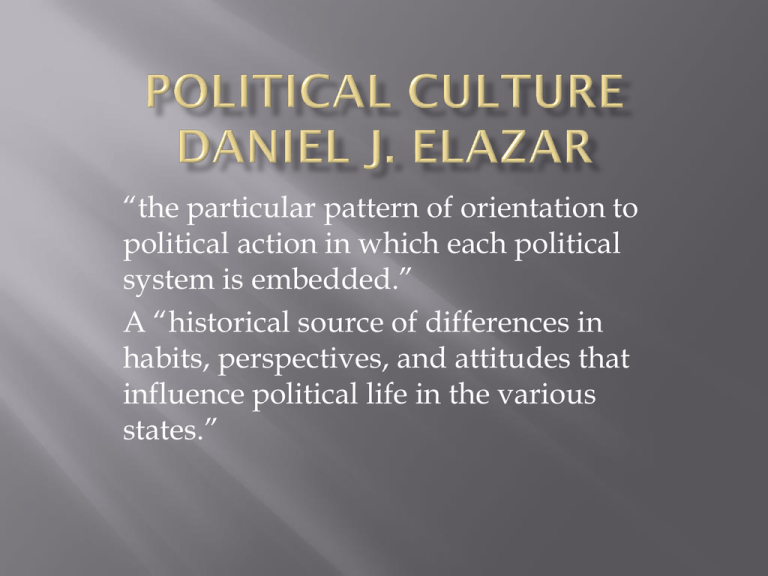
“the particular pattern of orientation to political action in which each political system is embedded.” A “historical source of differences in habits, perspectives, and attitudes that influence political life in the various states.” (1) the set of perceptions of what politics is and what can be expected from government, held by both the general public and the politicians; (2) the kinds of people who become active in government and politics, as holders of elective offices, members of the bureaucracy, and active political workers; (3) the actual way in which the art of government is practiced… …the kind of civic behavior dictated by conscience and internalized ethical standards…the character of law-abidingness displayed by citizens and officials; and…the positive actions of government. Individualistic Democratic order as marketplace Government exists strictly for utilitarian reasons Handle functions demanded by those it serves Government has no concern with questions of “the good society” Limited community intervention into private activities Politics viewed as a business Moralistic Commonwealth conception as basis for democratic government Politics as search for the “good society” for the betterment of the commonwealth, government as positive instrument to promote general welfare Politics seen as a public activity centered on the public good, devoted to advancement of public interest Community involvement in private affairs when necessary for public good High levels of political participation Little corruption in government Traditionalistic Ambivalent attitude toward marketplace Paternalistic and elitist conception of commonwealth Hierarchical society as natural order, those at the top take a special and dominant role in government Government actively intervenes in community to preserve the existing social order Real political power held by small, self-perpetuating group drawn from established elite (family/social position) Those who don’t have a role to play aren’t expected to be even minimally active Those active in politics benefit personally Loose one-party systems if parties exist at all Leaders play conservative and custodial roles Moralistic states: predominantly Midwest and New England Moralistic/Individualistic: West and Midwest Individualistic: Far West, Midwest, MidAtlantic Individualistic/Moralistic: Far West, New England Traditionalistic: South Traditionalistic/Moralistic: Includes NC Traditionalistic/Individualistic: South Central


